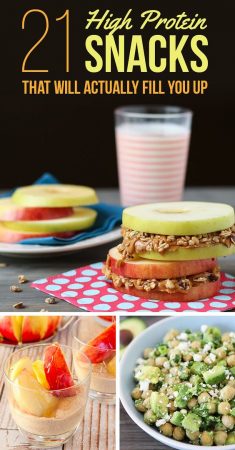Autumnal colours and the smell of change is in the air! For many of us in the Kootenays we are getting PUMPED at the closeness of the ski season, but with the powder comes shorter day light hours, colder nights and mornings, and the dreaded seasonal affective disorder (SAD). Like most conditions, prevention is the best medicine to avoid “the winter blues.”
Do I get SAD?
SAD symptoms are similar to depression, but happen at specific types of year. You can get SAD during fall and winter, as well as spring and summer. If you feel like you might get seasonal affective disorder please see a healthcare provider for diagnosis and treatment.
SAD symptoms include:
- Low mood during the day, feeling hopeless or worthless
- Lose of interest in activities you enjoy
- Low energy, feeling sluggish
- Changes in appetite weight
- Thoughts of death or suicide ( please see crisis resources at end of post)
- Oversleeping or problems sleeping
Seasonal Mood Support
Here is my favourite tips to help you avoid SAD and be able to embrace winter!
Carpe Daylight!

Taking the time to get outside in the daylight is essential in the winter time. This can be tough for many of us, especially if we are working during the day. I recommend to take a 10-60 min walk during your lunch break everyday you can. Studies show that even 13 mins of extra daylight can help to increase mood (Terman 2006).
The 13 mins of daylight exposure in the above mentioned study was done with simulated daylight. The majority of research on SAD treatment has been on phototherapy (light therapy), but curiously there is no research on actual daylight exposure and SAD symptoms. Current simulated daylight exposure recommendations is for 30-120 mins a day with a light boxes that emite 2000–10,000 lux. Light treatment with 10,000 lux has been shown to work quicker and with less side effects then anti-depressant medications (SSRIs) (Lam et al 2006).
Her are some suggestions of at home light boxes, or SAD lamps:
Winter Wonderland Exercise
Time and time again studies show that exercise is one of the most effective treatments and preventions for any kind of mood disorder, including seasonal affective disorder. In fact a review of exercise and depression showed it be to equal or BETTER than pyschological or pharamceutial therapy (Cooney et al 2013).

Here in the Kootenays we are blessed with an abundance of fall and winter activities! Getting outdoor exercise during the day is a 2 for one as it can get us some precious daylight exposure as well! Cross country skiing is my favourite winter sport, and is an easy to access activity in most Kootenay Communities. Walking, snowshoeing, alpine skiing, skii touring, skating and running are all outdoor activities that keep you active and outside during the winter.
Vitamin D
Many people increase their vitamin D intake in the winter as there is less sunlight hours. When it comes to seasonal effective disorder, the research results are conflicting – some studies show benefit, others do not. I usually find that people with very low vitamin D can have improvements in mood with 4000IU daily of vitamin D, but people with normal levels don’t see mood improvements from it. To increase your vitamin D levels make sure you get outside in the sunshine as much as possible as well as using supplementation.
Brain Nutrients
Many people have heard of our happy brain nutrients – serotonin (produced from tryptophan and 5-htp), dopamine, endorphins. Normally we get all of these from good nutrition and exercise (cardio specifically). During the winter many of us have a tendency to exercise less and not eat as well.
Serotonin boosting foods:
High tryptophan foods like turkey, soy, spirulina, beans and legums, eggs, seasame seeds, walnuts, cashews, wild-caught fish, whole grains, bananas and grass fed beef and lamb.
Foods high in B vitamins like whole grains, chicken, mushrooms, grapefruits and dark leafy greens
High magnesium foods like almonds, spinach, swiss chard black beans, dried figs, dark chocolate and pumpkin seeds.
Dopamine boosting foods:
High tyrosine foods like spirulina and seaweed, eggs, cheese, soy beans, pumpkin and sunflower seeds, tahini, squash, and happy healthy meats.
High vitamin B6 foods like turkey and beef, pistachios, pinto bean, sunflower and sesame seeds, avocado and blackstrap molasses.
Supplements
A B vitamin complex and magnesium are easy to find supplements and can be taken by most people. I recommend taking the b complex with food in the morning, and magnesium at night to help with sleep.
Blood Sugar for Happiness 🙂
Blood sugar balance is one of the most important things to make sure our brain is able use all of the brain nutrients mentioned above. Excess blood sugar causes a decrease in the transport of brain nutrients.
Tips to stabilize blood sugar:
- Avoid sweet drinks, foods, etc
- Have protein at every meal
- Always have healthy fats and protein when eating carbs of any kind
- Don’t skip meals and eat high protein/fat snacks throughout the day if needed
- Minimize caffeine intake, try a bulletproof coffee, or make sure to have food with your caffeine.
See my pinterest for healthy snack suggestions!
Herbal Sunshine – St. John’s Wort

St Johns Wort is my favourite herb for seasonal depression. It’s bright yellow flowers are turned into medicine that helps increase serotonin, is anti-inflammatory, and helpful for many people through the darker winter season. It is easy to find as a supplement at your local health food store.
If you are taking any prescription medications, especially anti-depressants, please only use St. John’s wort under the guidance of a naturopathic doctor. It has a strong effect on the liver and decrease or increase the effect of many drugs including oral birth control.
Crisis Support
If you ever have suicidal thoughts please reach out to your loved ones and the many free resources available to you.
https://crisiscentre.bc.ca/ – British Columbia Crisis support
https://kootenays.cmha.bc.ca/programs-services/crisis-line/ – Kootenays link, info below for local support.
“If you are in crisis or need to talk, we are here to listen. For 24-hour help, call:
- 1-888-353-CARE (2273) for the Crisis Line
- 310-6789 for the Mental Health Crisis Line
- or 1-800 Suicide (1-800-784-2433) if you would like information, resources, or support during a suicide-related crisis for suicide-specific concerns.”
http://www.crisisservicescanada.ca/ – Canada wide service.
References:
https://ajp.psychiatryonline.org/doi/abs/10.1176/ajp.2006.163.12.2126
https://www.tandfonline.com/doi/abs/10.1081/CBI-120019310
https://www.cochranelibrary.com/cdsr/doi/10.1002/14651858.CD004366.pub6/abstract
https://www.ncbi.nlm.nih.gov/pubmed/16648320

